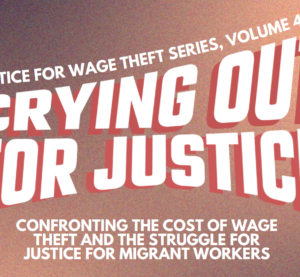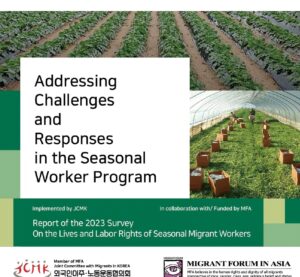Human Rights Council 14th Session Opening Statement
— May 30, 2010
Human Rights Council 14th Session
Opening Statement by
Ms. Navanethem Pillay
United Nations High Commissioner for Human Rights
Geneva, 31 May 2010
Mr. President,
Distinguished Members of the Human Rights Council,
Excellencies,
Ladies and Gentlemen,
I welcome the twelve newly elected members of the Human Rights Council and warmly acknowledge the work and commitment of those States that have already served or continue to participate in this body. The process of reviewing and strengthening the Council, which is already underway, will require utmost dedication, determination and energy on the part of all past and current Council members, all their peers, as well as the whole range of other stakeholders in the UN system and civil society. Our ultimate goal is to make the Council more efficient and more effective in serving the interests of rights- holders everywhere. I will be addressing this topic at the Council’s next session in September.
I recently presented my second report on OHCHR Activities and Results which highlights ways and means by which we seek to implement the OHCHR’s mandate. Let me reiterate at this juncture that, in the past year, we have sought to be ever more vigilant to counter deeply rooted and chronic human rights violations in many countries. These include repression, discrimination, injustice and violence, as well as rapidly unfolding challenges to human wellbeing, which undermine civil, political, economic, social and cultural rights.
In this presentation I shall address forthcoming events of relevance to the Council’s work and provide an update on specific situations, as well as outline issues for advocacy.
The Millennium Development Goals Summit in September 2010 may have great bearing on the work and vision of the Council in general. It is also eminently pertinent to some of the discussions that will engage this body both in its ongoing main session and in its planned side panels.
From the outset, allow me to recall that the Millennium Declaration, from which the MDGs derive, resolved to make the right to development a reality for everyone and to free the entire human race from want.
The Millennium Declaration recognized that a denial of rights engenders or perpetuates dire conditions of exclusion and want, including poverty. In turn, poverty undermines basic human rights, such as access to food, to shelter, and to education. It entrenches discrimination and marginalisation and makes it difficult for victims to obtain justice and remedies when their rights are violated. In sum, poverty, discrimination and marginalisation are both causes and effects of violations of economic, social, cultural, political and civil rights.
The MDGs did not call for lofty and vague commitments. Rather, they envisaged plausible, applicable and actionable policies to be delivered by 2015.
In a March 2010 report, “Keeping the Promise” the Secretary-General emphasised that progress along the MDG’s path must be guided by the norms and values embedded in the Millennium Declaration and international human rights instruments, which uphold the principles of non-discrimination, meaningful participation and accountability and create the foundation and conditions of human welfare.
Mr. President,
The Millennium Declaration considers gender and discrimination as cross-cutting issues. Progress in the search for equality in those two areas is a prerequisite for achieving the Millennium Development Goals.
We should recall that global averages of MDG targets often fail to take account of the poorest of the poor. Indigenous peoples, people of African descent, minorities and other victims of racial discrimination are often hidden behind the statistics, and their needs and rights remain unattended.
Let me be clear on this score: Governments bear the primary responsibility to counter these and other forms of intolerance, marginalization, disadvantage, poverty, inequality and exclusion. However, the international community can be an important partner in their efforts.
Women and girls often experience multiple forms of discrimination and represent the vast majority of those living in poverty everywhere. Their situation demands particular attention.
In this regard, I wish to commend the Council for its forthcoming panel related to maternal mortality and morbidity. Every year, more than half a million women and girls die, and millions more are disabled through pregnancy and childbirth. These deaths are not inevitable. They could be prevented if women had access to the basic care which has been available for more than 60 years. It is not by coincidence that Goal 5 – Improving Maternal Health – of the Millennium Development Goals is the furthest away from realization. Clearly, sustained and specific attention must be devoted to correct this chasm. The study on “preventable maternal mortality and morbidity and human rights” that the Council asked my Office to conduct will be discussed in an interactive dialogue on 14 June 2010. I believe that it may offer useful elements to such reflection.
As we prepare for the MDG Summit and review progress towards the achievement of the MDGs, I urge all States to keep the full realisation of human rights, including the right to development, at the forefront of their action and progress.
Excellencies,
In this context, let me draw your attention to the germane issue of the Declaration on the Right to Development. Its 25th anniversary will fall in 2011. This event, too, presents an opportunity to reflect on how to carve larger areas of freedom and welfare in a world of scarce resources and in the face of natural and man-made calamities.
The dialogue on the right to development has reached a critical stage. I hope that the next phase of deliberations will continue to focus on realizing the Declaration’s vision for the improvement in human well-being and the empowerment of individuals and communities to fully participate in making the important choices that affect them. Allow me to recall that the Declaration reiterated the centrality of attaining equality of opportunity for all. It underscores that States, supported by the international community through international cooperation, have the responsibility to create the conditions necessary to enable individuals and peoples to realize their aspirations for the basic human dignity that is at the core of human rights. These calls, too, must be heeded.
Ladies and Gentlemen,
Allow me now to update you regarding specific human rights situations in many parts of the world.
The past month has marked the first anniversary of the end of the conflict in Sri Lanka. I call on the Council to reflect on the commitments made by the Government of Sri Lanka when the Council held its special session to address the serious concerns which had arisen in the last stages of the fighting in that country. Since then, some progress has been made in the return and resettlement of internally displaced persons and the partial relaxation of emergency measures. Concrete initiatives must now follow to provide justice and redress to victims and generally to promote accountability and longer-term reconciliation. The Government has recently created a Commission on Lessons Learned and Reconciliation to address some of these questions. However, based on previous experience and new information, I remain convinced that such objectives would be better served by establishing an independent international accountability mechanism that would enjoy public confidence, both in Sri Lanka and elsewhere.
I have been following closely the unrest in Thailand during which lives were lost. I recognize that the authorities have the responsibility to restore order. In doing so, however, they must abide by international standards concerning the use of force and due process for those detained. I also recognize efforts that the Royal Thai Government has made over the past couple of months to resolve the situation, including the establishment of a “road map” for national reconciliation. To foster longer-term political reconciliation, I urge the Government to ensure that an independent investigation of recent events be conducted and all those found responsible for human rights violations are held to account.
I welcome the decision in Nepal on 28 May to extend the Constituent Assembly by one year. I hope that this period would be utilized to finalize a new constitution with the strongest possible human rights protections and to complete other components of the peace process. I look forward to renewing OHCHR’s mandate in the country to continue our support to the peace process. I strongly condemn last week’s indiscriminate attacks in Pakistan and India in which civilians were targeted and killed. I express my deepest sympathy to the victims and the survivors.
Turning now to Africa, I wish to draw your attention to human rights developments in the context of electoral periods. Many elections have taken place or are scheduled in the near future in the region, including in Burundi, the Central African Republic, Chad, Côte d’Ivoire, Equatorial Guinea, Ethiopia, Guinea, Madagascar, Niger, Rwanda, Sudan, and Tanzania and Togo. It is of fundamental importance that in the lead up to the ballot and in its aftermath freedoms of expression, assembly, association and movement and all other human rights are upheld. I call upon all the countries that recently have held or are preparing elections to take all necessary measures to safeguard human rights, to minimize the risk of violence, and to allow the airing of different views as well as the broadest participation of candidates. Human rights defenders must be protected and enabled to operate freely. I have made this point repeatedly regarding national human rights defenders whose life is often at risk. The same rights apply to international advocates.
Regarding specific situations of concern, I note that following the violent clashes between communities which took place in Nigeria in January and March this year, my Office continues to receive troubling information on the situation in Jos, with serious concerns for the risk of further violence. I encourage the Government to work closely with local authorities and civil society to take effective measures to prevent the recurrence of violence by addressing its underlying causes, and by punishing abuse. Measures to address the issue of hate speech are also of paramount importance. I would like to call upon the Council to exercise maximum vigilance, as the potential for continuing violence in Nigeria is high.
I take this opportunity to highlight the important national consultation process on transitional justice process that was just concluded in Burundi. I am pleased that my Office was able to assist the people of Burundi to make their voice heard about how they wish to address past human rights violations. Their commitment to justice as a way to achieve durable and sustained peace is commendable.
As you are aware, the possibility of reducing the scope, or withdrawing military components, of UN peace-keeping operations has recently been discussed in relation to Chad and the Democratic Republic of Congo. While some progress has been made in consolidating peace in both countries, considerable challenges remain, notably from the point of view of the protection of civilians. I cannot over-emphasize that the reduction or withdrawal of UN military forces must not put at risk the lives and security of civilians. OHCHR is looking at ways to ensure that attention to human rights issues does not suffer from the reconfiguration of peace operations. Responses to changing needs on the ground must always be crafted by including a human rights perspective. I request the support of the international community to ensure that human rights remain on the agenda in the concerned countries.
On a different note, I am pleased to announce that OHCHR is in the process of establishing a country office in the Republic of Guinea. Since the release of the report of the International Commission of Inquiry on the 28 September 2009 events, the Government of Guinea has closely cooperated with OHCHR. The key objectives of OHCHR in Guinea are to support the Government’s efforts to protect human rights, in particular to fight against impunity.
Distinguished Members of the Human Rights Council,
Haiti is a country where prior to and in the aftermath of last January’s devastating earthquake, a vast array of human rights concerns converge. As the Secretary General noted, Haiti’s plight is a reminder of our wider responsibilities. The massive international response at the donor conference in March 2010 is a positive example of international cooperation. In view of your forthcoming debate on the follow up to the Council’s Special Session on Haiti on 16 June, allow me first to draw your attention to the situation of 1.5 million IDPs. Protecting displaced populations, especially women, children and persons with disabilities, as well as other vulnerable groups, continues to be a matter of priority. We will continue working with the Government of Haiti, in coordination with the Special Envoy to Haiti, and of all relevant stakeholders to ensure the application of a human rights-based approach in reconstruction activities. Ultimately, the aim is to overcome economic and social inequalities. My Office, in coordination with relevant UN entities on the ground is also working closely with the authorities in strengthening national protection systems.
As elsewhere, sexual violence remains of great concern in Colombia. My last report to the Council highlighted sexual violence by armed actors as well as threats to women human rights defenders by State intelligence services. The report urged the Government to put into effect a policy of “zero tolerance” on sexual violence for its armed forces. Consequently, my Office in Colombia has engaged in a dialogue with the President and the Minister of Defense on this matter. I am pleased to inform you that the Government has pledged to apply such a policy later this month.
Before updating you on my own field activities, let me convey my continuing concern regarding the human rights situation in the occupied Palestinian territory. I have expressed my concerns over military orders 1649 and 1650, recently implemented by the Government of Israel and I am pursuing discussions on this matter. In the Gaza Strip, the blockade keeps undermining human rights on a daily basis. There have been marginal increases in the amount of goods allowed into Gaza recently; but the current situation falls far short of what is necessary for the population to lead normal and dignified lives. I condemn once again the indiscriminate firing of rockets from Gaza into Israel. Last March in southern Israel, a migrant worker was killed in such an attack.
And now, allow me to briefly highlight some of the missions I have undertaken in the past few months.
Last March, I conducted my first visit to Italy where I held open discussions with the Government about the situation of migrants, asylum-seekers and Roma in the country. I have expressed concern at the treatment of migrants and the Roma as a security problem rather than focusing on a policy of social integration. I also discussed the importance of establishing a national human rights institution to promote and protect human rights.
In April, I visited the Gulf Cooperation Council States. In the course of this ten-day mission I met authorities at the highest level, civil society representatives and the press. The important reforms spearheaded by the Heads of States themselves are very welcome. I was encouraged by human rights developments in a number of areas, including increased compliance with international obligations. More human rights treaties are being considered for signature and ratification and national human rights institutions are being created. I learned of significant progress made in the education of women in all of the countries that I visited, and noted serious efforts to address trafficking in persons. My discussions covered the need to increase protection of migrant workers, especially migrant domestic workers. In noting some progress in this area, too, I offered my Office’s assistance in fostering further change. I look forward to our continued cooperation.
Last month, I addressed the Jubilee Biennial Conference International Association of Women Judges in Seoul. During that visit, I was pleased to meet with the two Vice Ministers for Foreign Affairs of the Republic of Korea, as well as the National Human Rights Commission, to discuss possible areas of collaboration.
Also last month, in the course of my visit to Japan, I met Prime Minister Hatoyama and other senior officials, as well as representatives of civil society and minority groups. I was encouraged by the Prime Minister’s commitment to human rights reforms in Japan, particularly the ratification of optional protocols to human rights treaties and the establishment of a national human rights commission. I believe these steps will improve access to remedies for all in Japan and help to address patterns of discrimination against minorities, migrants and other disadvantaged groups. During that visit, I met with the families of Japanese nationals who were abducted by the Democratic People’s Republic of Korea over the past several decades and whose fate has not been adequately clarified by the DPRK authorities. I urge the DPRK to resume dialogue on these cases and to facilitate an independent investigation into the whereabouts of the disappeared.
I would like to inform you that I am leaving tomorrow for Uganda and Kenya. I look forward to visiting those two countries and to assess how my Office can continue to support these countries in addressing their human rights challenges. In Uganda I will address and attend the review conference of the International Criminal Tribunal.
I consider of paramount importance getting a firsthand view and to receive firsthand accounts of human rights conditions on the ground. These interactions are at times heartbreaking and difficult. They are also invariably refreshing and reinvigorating.
I wish you an equally reinvigorating discussion and thank you.



